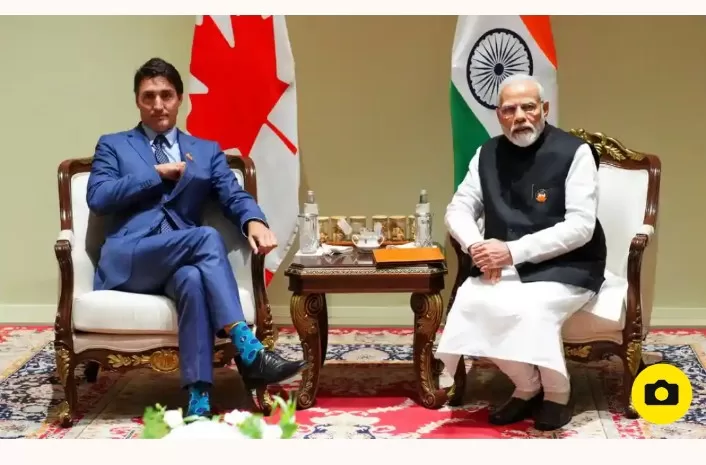In a move reflective of mounting tensions between the two nations, New Delhi has taken the unprecedented step of indefinitely suspending visa services for Canadian citizens. This decision comes as Ottawa, in response to perceived threats on social media platforms, temporarily adjusts its diplomatic presence in India to ensure the safety of its embassy staff.
Notably, the catalyst for these diplomatic maneuvers was Canadian Prime Minister Justin Trudeau’s assertion of Indian involvement in the assassination of Khalistani leader Hardeep Singh Nijjar. This assertion ignited a diplomatic row, leading to reciprocal expulsions of senior diplomats in recent days.
The formal announcement of visa service suspension was conspicuously absent, but it was confirmed by BLS International, the organization responsible for managing visa application centers in Canada. The Indian Mission conveyed a terse message, stating, “Due to operational reasons, with effect from 21st September 2023, Indian visa services have been suspended till further notice.”
Indian authorities refrained from elaborating on this move, emphasizing that the message’s clarity speaks for itself. Notably, this marks the first instance of India suspending visas since the onset of the Covid-19 pandemic.
India had previously issued an advisory urging its citizens in Canada to exercise extreme caution in light of growing anti-India activities and politically-motivated hate crimes. Special emphasis was placed on Indian students, who were advised to maintain vigilance.
Hardeep Singh Nijjar was fatally shot in the parking lot of the Guru Nanak Sikh Gurdwara he presided over in Surrey, British Columbia. He held a prominent role in the secessionist group Sikhs for Justice (SFJ) in the province, which has attributed his assassination to India.
Canadian officials have sought increased security measures for their diplomatic missions, including the high commission in New Delhi and consulates in Mumbai, Chandigarh, and Bengaluru. They invoked the Vienna Convention to underscore the necessity for India to ensure the safety of their diplomats in India.
Concurrently, India has bolstered security at its missions in Canada, particularly for senior diplomats, following SFJ’s release of posters in July bearing the ominous message “Kill India.” Furthermore, SFJ has threatened to “shut down Indian missions” on September 25, labeling them as “terror houses.”
SFJ, banned in India since 2019 for its pro-Khalistan activities, has issued threats against Hindus of Indian origin, accusing them of supporting their country of origin and promoting violence by commemorating Nijjar’s assassination.
In the backdrop of these developments, Canada finds itself grappling with international skepticism regarding its claims, particularly as India enjoys warm bilateral relations with countries such as the US, Japan, and France. Consequently, India’s ties with Germany, Italy, and the United Kingdom have experienced recent improvements, making it imperative for Canada to tread carefully in its dealings with India.







